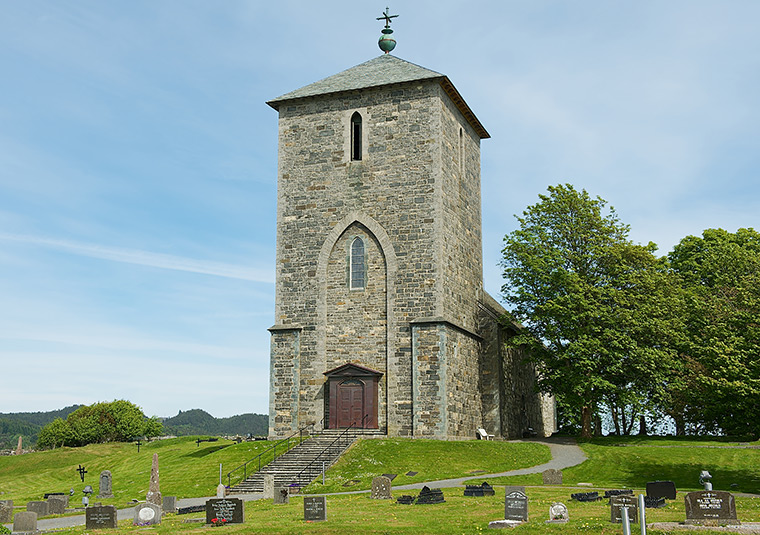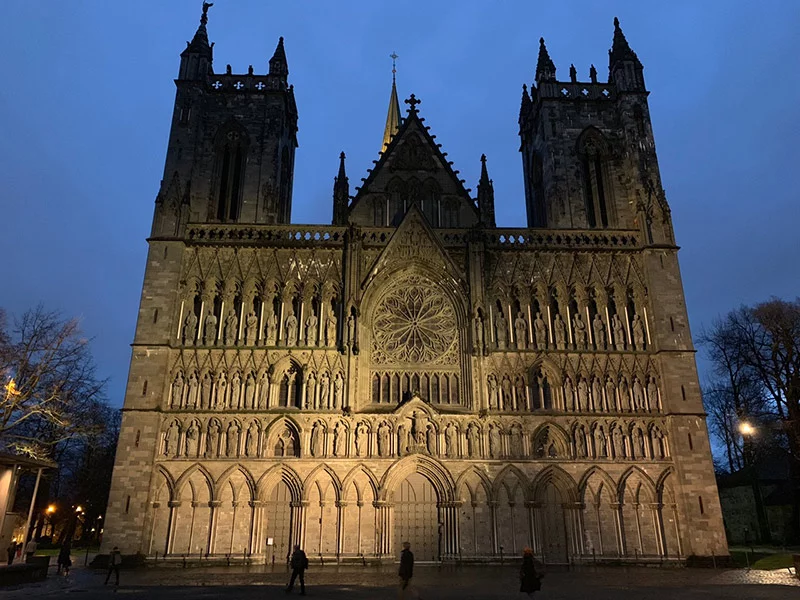If you're a native English speaker, you'll know it as pentecost or whitsun. Here in Norway, it's pinse. But what exactly is it? Let's look at the meaning of this public holiday in Norway.
Pinse is a christian-based public holiday in Norway. While the country finally split church from state in 2017 after a five-year process, Norway retains its faith-based holidays. Pinse is one of those, and perhaps the least well-understood.

For most Norwegians, pinse is simply one of the public holidays that means a day off work. The day is one of the non-fixed holidays, meaning it falls on a different day each year.
However, pinse is always marked on a Sunday and Monday, so the majority of workers receive the Monday off.
When is pinse in Norway?
In western churches, pentecost can be as early as 10 May and as late as 13 June. In 2024, pinse in Norway is on the earlier side of things, on the weekend on 18-20 May.
This means that in 2024, første pinsedag (first pinse day) is Sunday, 19 May. Andre/annen pinsedag (second pinse day) is on Monday, 20 May.
Although not part of the holiday, Saturday 18 May will also be different. Known as pinseaften (the eve of pinse), the Saturday sees most shops close by 4pm or even earlier.
Of course, the eagle-eyed among you will notice that means there will be a long weekend, as Friday 17 May will of course be Norwegian Constitution Day.

That means you’ll need to plan your grocery shopping carefully between 16 May and 21 May this year!
In 2025, pinse weekend is scheduled for 7-9 June. In 2026, pinse weekend is scheduled for 23-25 May.
What happens on pinse?
Aside from specific family traditions, most Norwegians don't celebrate in any special way. Of course, some christians will go to a church service. Beyond that, there aren't any specific traditions of note.
However, on the Sunday, no advertising is permitted on TV or radio – from Norwegian-based media. Commercial stations still hold advertising breaks, but they are dedicated to non-profit organisations.
Read more: Faith in the Viking Age
You will see advertising on some Norwegian channels however, as some of them are actually transmitted from outside Norway.
As with other public holidays, Monday sees the vast majority of shops closed. Schools and many workplaces are likewise closed.
What is the history of pinse?
The word pentecost comes from the Greek pentecoste, which referred to the jewish harvest festival shavuot mentioned in the Old Testament. The word literally translates to fiftieth, referring to the end of a seven-week period from the offering of the second day of passover.

In christianity, pentecost is celebrated on the seventh Sunday after easter. It commemorates 50 days after the supposed descent of the Holy Spirit upon the disciples, if you count easter Sunday as day one.
According to the christian faith, after Jesus ascended to heaven on ascension day, he promised he would send the ‘holy spirit' so that he would ‘be everywhere’.
To christians, pentecost is just as important as christmas and easter. The Bible reads as follows:
“Suddenly a sound like the blowing of a violent wind came from heaven and filled the whole house where they were sitting. They saw what seemed to be tongues of fire that separated and came to rest on each of them. All of them were filled with the Holy Spirit and began to speak in other tongues as the Spirit enabled them.”
The future of pinse
Following the separation of church from state in Norway, some have questioned whether christian holidays should remain public holidays. In fact, it's a question that has been asked long before.
In 1993, the third government of Gro Harlem Brundtland proposed to make andre pinsedag a regular working day.
However, the proposal didn't gain support in parliament. In fact, it also failed to gain enough support within the prime minister's own Labour party.
What will you be doing this pinse?

